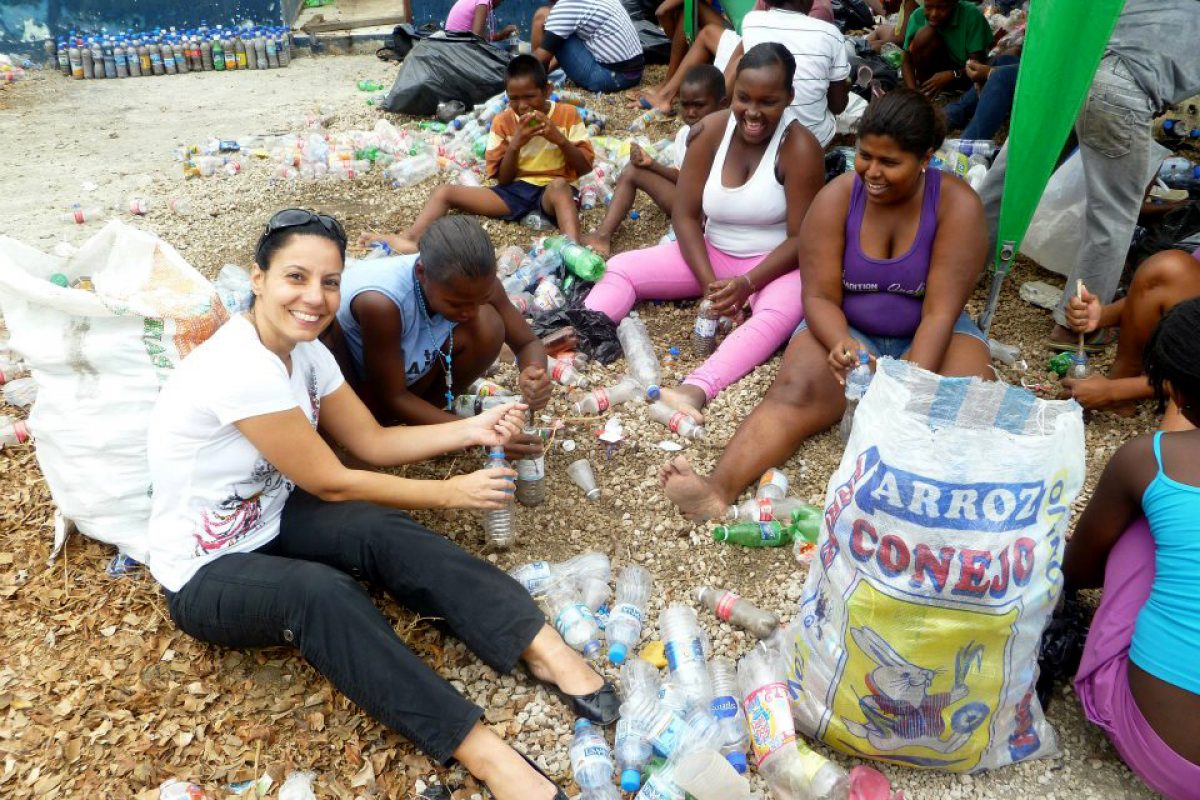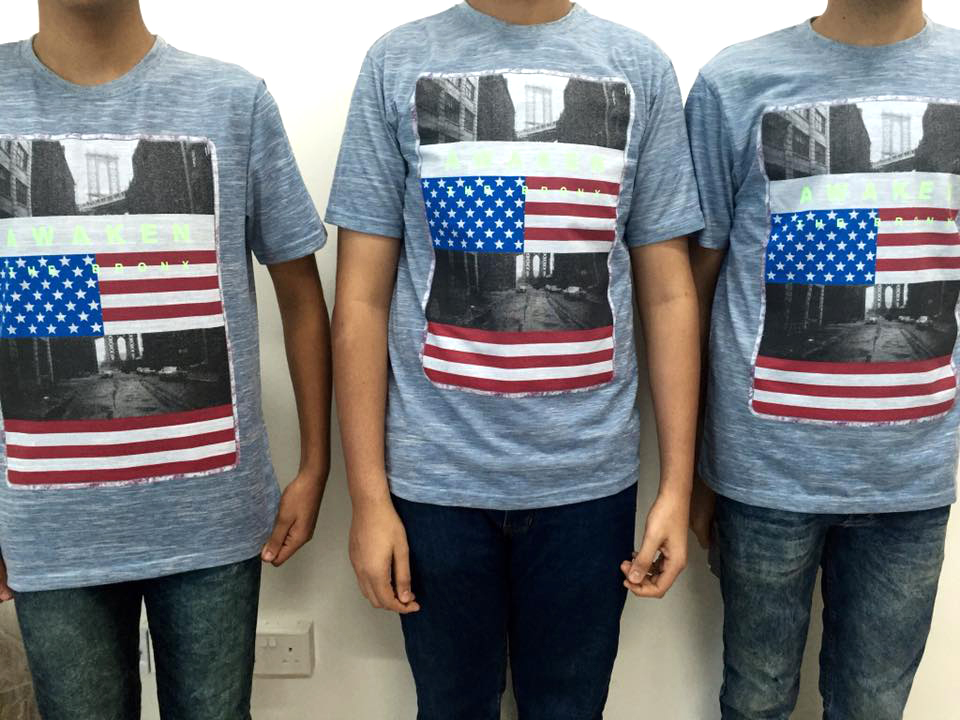Maha Ganni: Migrant, Refugee, Humanitarian Expert

As the ICMC Deployment Program entered its 20th year, we invited Ms. Maha Ganni, the program’s first humanitarian expert, to share her testimony. Drawing on her personal experience as a migrant and a refugee as well as on her humanitarian practice, she tells stories of resiliency and hope.
By Maha Ganni
I was born to Iraqi Catholic Chaldean migrants in Kuwait. On 2 August 1990, Iraq invaded Kuwait and the lives of many people changed. Mine was one. I was separated from my family and ended up in Spain, a country with a different culture and language. Due to the immigration laws of the time, my family and I were separated and lived in different countries for 11 years.
Through my struggle to obtain legal status in Spain and with the advantage of speaking English and Arabic and having later learned Spanish, I began to assist other refugees. And so in 1992, I started working with the International Catholic Migration Commission’s affiliate office in Spain.
In September 1998, when the U.S. Bureau of Population, Refugees and Migration and the UN Refugee Agency (UNHCR) initiated the Middle East Resettlement Program, the-then brand new ICMC Deployment Scheme enrolled me to work with the UNHCR operation in Beirut, Lebanon. So, I became ICMC’s very first “deployee”!
The following year, I remained in Beirut as an ICMC staff member to establish its Overseas Processing Entity. There, I processed refugee cases for the U.S. Citizenship and Immigration Center under the management of the Regional Office in Istanbul, Turkey.
I stayed in Beirut 10 years, during which time I went on short missions to Yemen, India and countries in West Africa. I also provided support to the ICMC office in Turkey during the influx of Iraqi refugees after the fall of the Iraqi government in 2003. Over the following years, I was deployed to Jordan, Ecuador and the United Arab Emirates, from where I covered all the Gulf countries.
It was in Ecuador, during my first deployment in Latin America, where I had to cut short my deployment from six months to one and a half because of security concerns. I was based in Esmeraldas, close to the Colombian border, and worked with Afro-Colombian refugees. Due to the high-risk environment, I was unable to see myself staying there for the contractual six months.
The staff of the ICMC Deployment Scheme understood and supported me. And I realized that yes, the work in the field matters as we are dealing with people’s lives, but our own well-being is also important. My ICMC colleagues made me feel I was not alone but part of a family. I was treated as a person, not a number.
A Blessed Journey of Laughter and Tears
Looking back, the last decades appear as challenging, with many ups and downs. But it has also been a blessed journey.
I have had the privilege and honor to meet people from all walks of life throughout my career. I can’t remember two similar cases; the challenges were always different. At times, I had to interview refugees at airports and prisons.
Moments of laughter and moments of tears were shared. Each person made me feel blessed for having crossed their path. Each experience was unique and meaningful in its own way.
No two stories are equal, but some stick with you.
I remember Leila, who had fled war in her country. As a young girl, she was married off to a man with whom she had two daughters and a son. But her husband had forged his nationality and Leila’s children were left with no documentation and thus without schooling.

Leila could not pass her nationality on to her children. Her husband became violent and abusive. She educated herself, obtained the custody of her children and found a job. But her children could not be granted legal residence as she did not meet the requirements.
After eight months, Leila and her children were finally resettled to a third country.
Another story I remember happened in a Gulf country where three Iraqi boys came to an interview wearing t-shirts with the American flag. They thought I represented the U.S. government and wanted to show their enthusiasm and respect.
They had not been able to attend school for four years. Their father was in a wheelchair as a consequence of the torture he endured in retaliation for working with the U.S. government after the fall of the Iraqi government. The boys dreamed of continuing their education. They wanted to become a doctor, an engineer and an actor so that they might contribute to their new home and society.
One story that touched me was that of Wael because it made me realize how easy it is to be judged on your passport rather than on who you are.
He was a student in a foreign country when war began in his homeland. As a result, his visa was no longer accepted and he was deported to the Gulf country were his parents resided. But there too, visa restrictions applied and he was not allowed to join his family. He could not return to his homeland either since there he would have been forced to join the army.
For three months, Wael circulated between airports in five countries until the UN Refugee Agency learned about him. I was asked to interview him in a transit lounge. Wael’s wife had sought asylum in a European country. Once she was granted refugee status, Wael was able to reunite with her.
My passion and dedication to the cause of refugees is rooted in the desire to ensure that what happened to me and my family will not happen to others and to be a positive force in other people’s lives. That’s how it began years ago and how it continues today.
Names have been modified to protect people’s identities.
The ICMC Deployment Program works in close collaboration with the UN Refugee Agency, supplying humanitarian experts to ensure timely protection to refugees and other vulnerable persons. ICMC draws on a highly-qualified pool of humanitarian experts to deliver rapid, focused support in refugee resettlement, complementary admission pathways, child protection, refugee status determination, anti-fraud measures and more. ICMC experts also assist multilateral organizations and governments directly.